Israel ‘is planning a new ground war against Hezbollah after Gaza campaign’ with officials warning October 7 massacre would be ‘nothing compared’ to a terror attack from the north
Israel plans to invade Lebanon to push Hezbollah back from its northern border, according to reports, amid a barrage of rocket attacks since the outbreak of the war in Gaza and fears the terror group is “worse than Hamas.”
After weeks of exchanging cross-border fire, the Israeli Defense Forces (IDF) are reportedly keen to launch a ground offensive in southern Lebanon, aiming to push the terror group north along the Litani River.
Military and government officials in Israel have said they are determined to prevent a repeat of the October 7 invasion from Gaza, with warnings that the scale of a Hezbollah raid could be even deadlier than the massacre of 1,200 people.
“What happened in the south is nothing compared to what they could do here,” a senior Israeli officer said The times. “Israeli doctrine is to take the war to the other side.”
It comes as Israel's war in Gaza continues, with new attacks overnight in the besieged Strip, including an attack on the Jabalia refugee camp in the north that killed 90 Palestinians, the Gaza Health Ministry spokesman said.
Black smoke rises from an Israeli airstrike on the outskirts of Aita al-Shaab, a Lebanese border village with Israel in southern Lebanon, Monday, November 13, 2023
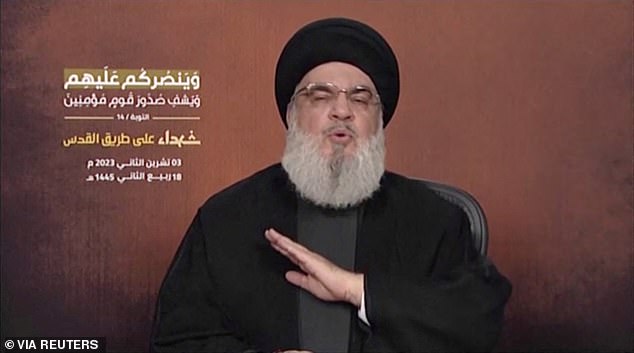
Hezbollah leader Sayyed Hassan Nasrallah
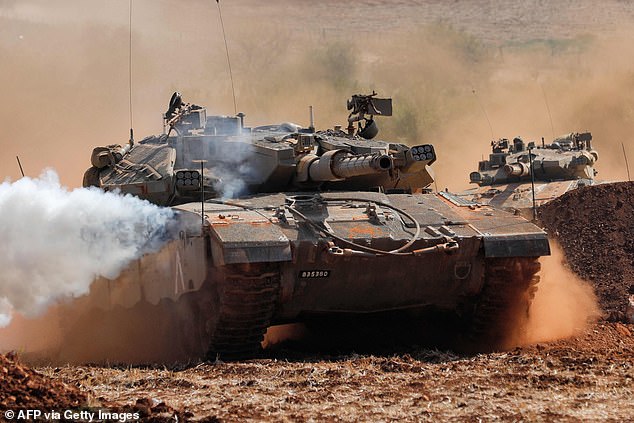
Israeli Merkava tanks take part in a military exercise near the border with Lebanon in the Upper Galilee region of northern Israel on October 24, 2023
Fears are growing that Israel's war against Hamas, in which more than 18,800 Palestinians have been killed in 'indiscriminate' attacks on Gaza, according to the Health Ministry, could degenerate into a regional conflict.
Funded by Iran, Hezbollah has built up its military strength over the years, building a huge arsenal of some 100,000 missiles that could “overwhelm” Israel's Iron Dome defense system.
Border tensions have increased over the past 70 days, reviving memories of Hezbollah's devastating 2006 war with Israel, which killed more than 1,200 people in Lebanon, mostly civilians, and 160 in Israel, mostly soldiers.
The conflict ended thanks to a UN ceasefire resolution, which agreed that all forces, with the exception of UN peacekeepers and the official Lebanese army, would be moved north of the Litani River.
But instead, in the years that followed, Hezbollah remained in the south and built up its fortifications near the borders, claiming it provided protection against the Israeli threat.
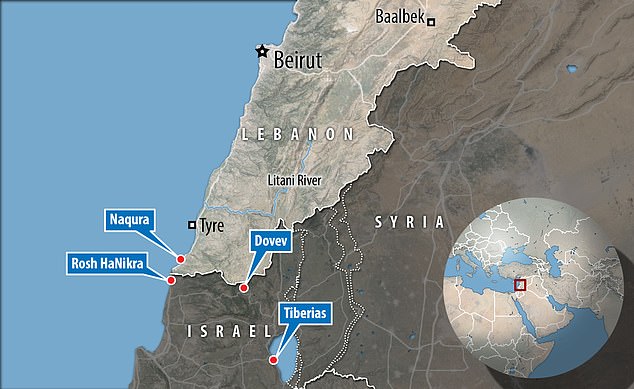
A map showing Lebanon's Litani River, where non-governmental forces were ordered to be pushed back in a 2006 UN resolution
Continued attacks have killed Israeli and Lebanese civilians, with residents of border communities evacuated en masse in recent weeks.
The two sides have continued to exchange threats, with Hezbollah leader Hassan Nasrallah repeatedly boasting that his group's weapons could reach deep into Israeli territory.
Vice Admiral Daniel Hagari, an Israeli military spokesman, warned that Hezbollah was “dragging Lebanon into an unnecessary war that would have devastating consequences.”
Benny Gantz, the former Israeli prime minister who serves in Netanyahu's war cabinet, warned: “If the world doesn't remove Hezbollah from the border, Israel will.”
Israel and Lebanese Hezbollah have exchanged fire along the border almost every day since the war began, and other Iranian-backed militant groups have attacked US targets in Syria and Iraq.
Yemen's Iran-allied Houthi rebels have attacked ships in the Red Sea with missiles and drones, portraying them as a blockade of Israel.
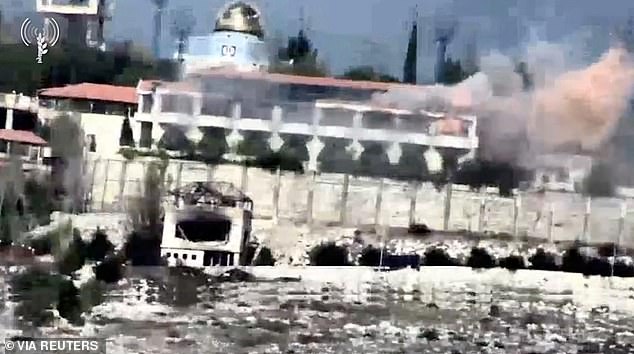
An attack on what the Israeli military says is a Hezbollah target in a location called Lebanon
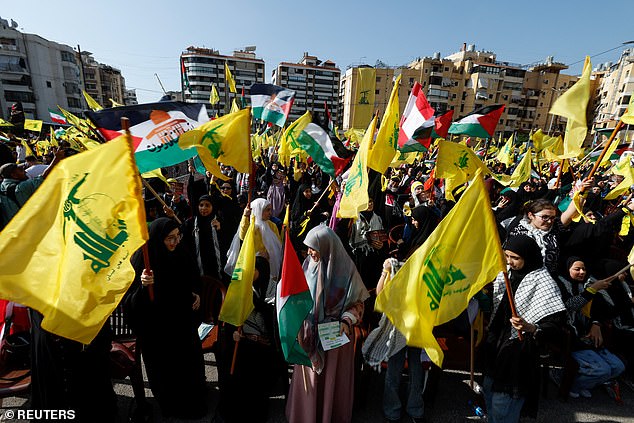
Lebanese Hezbollah supporters gather to attend a ceremony honoring fighters killed in the recent escalation with Israel last month
Nearly 300 Palestinians have been killed in the Israeli-occupied West Bank since the war began, making this the deadliest year for Palestinians there since 2005.
Most were killed during Israeli military attacks, which often lead to gun battles, or during violent demonstrations.
U.S. defense leaders hope to avert the risk of a broader regional conflict, both through a continued high level of U.S. military presence and by urging Israel to scale back operations.
President Joe Biden has warned that Israel is losing international support over its “indiscriminate bombings.”
Israeli Defense Minister Yoav Gallant said last week that his country will continue major combat operations against Hamas for several more months.
